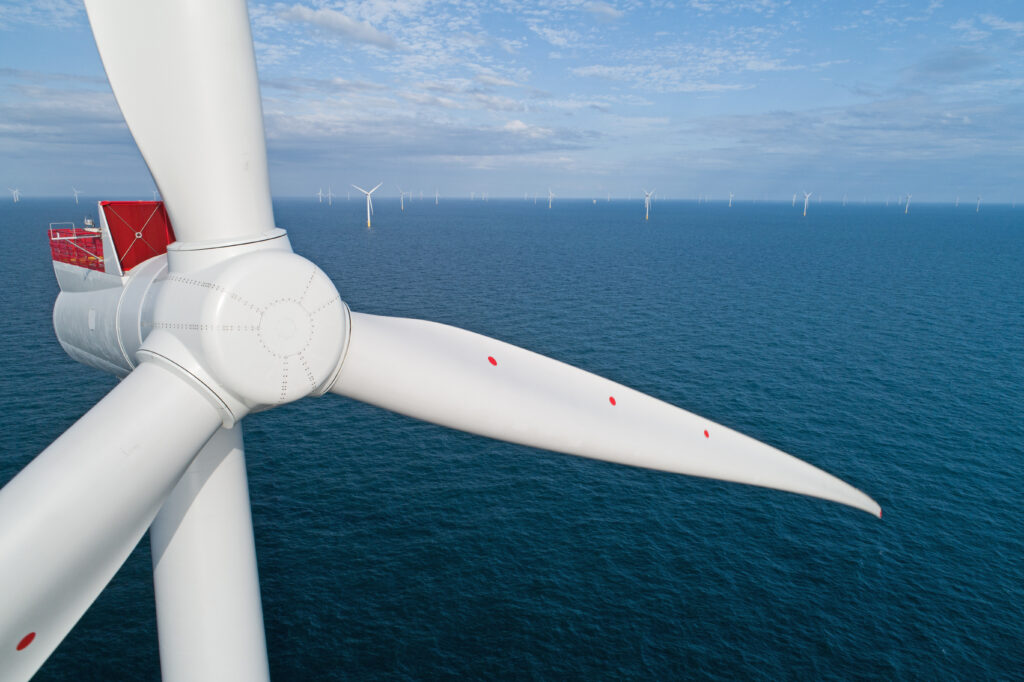Renewable energy company, Ørsted, and Edinburgh Airport in Scotland have partnered in a bid to reach net zero emissions by 2040.
In the memorandum of understanding (MOU) signed to decarbonize Edinburgh Airport and rapidly accelerate the shift to sustainable air travel, the airport committed to focusing on the use of green technologies. These will include new hydrogen fuels produced at scale from offshore wind farms, to eliminate carbon emissions from both the airport and the aircraft that operate from it. Specifically, the partnership will work to decarbonize the energy that the airport, its vehicles, its passengers’ vehicles and the aircraft are using. The partners will work with the Scottish and UK governments on the changes to regulations, including proposals for hydrogen production facilities powered by offshore wind to support decarbonization.
The MOU was inspired by the Green Fuels for Denmark project, led by Ørsted, in which Ørsted, Copenhagen Airport, SAS airline, Maersk and others are working together to create a renewable hydrogen hub to decarbonize transport, air travel and shipping. By combining supply- and consumer-side actors, the project seeks to develop 10MW electrolyzer capacity by 2023 and 250MW electrolyzer capacity with e-fuel production by 2027, with a vision to scale up to 1.3GW by 2030. The electricity will be sourced from offshore wind farms and the renewable hydrogen will then be combined with sustainably sourced carbon to produce 250,000 tons of e-kerosene and e methanol per year when fully scaled up. Ørsted intends to draw on this experience and work with Edinburgh Airport to implement an array of initiatives that will accelerate the shift to sustainable air travel.
Graeme Dey, Scottish Minister for Transportation, said, “Our recent report into decarbonizing the transport sector makes it clear that all modes need to reduce emissions in order for Scotland to meet our ambitious climate change targets, so we welcome this partnership between Edinburgh Airport and Ørsted. It is critical that businesses and other organizations at least match Scotland’s statutory targets and our ambition to create a net zero economy. This project has real potential in that regard and I look forward to hearing more about it and seeing it develop.”
Duncan Clark, head of UK region at Ørsted, said, “This is a key stage reach net zero by 2045. While we have made huge strides in decarbonizing the way we generate electricity, the next stage is to use that renewable electricity to decarbonize industry and transport. This will involve renewable energy companies collaborating with forward-looking companies such as Edinburgh Airport. Renewable hydrogen is key to decarbonizing heavy transport and air travel, and we look forward to working together on this exciting technology.”
Gordon Dewar, chief executive of Edinburgh Airport, said, “The aviation industry realizes the part it plays in emissions and the need to move toward a cleaner, more sustainable future. We have made huge advances in technology and we want to continue to innovate and ensure aviation’s future is one that is decarbonized and contributes positively to our economy and Scotland’s net zero ambitions. Although aviation emissions derive in the main from aircraft in flight, we can play our part within our estate and fuel for aircraft at Edinburgh. We are confident this exciting partnership will help us on our way to a sustainable travel future and see Edinburgh Airport helping to develop and support sustainable fuels and their use.”

